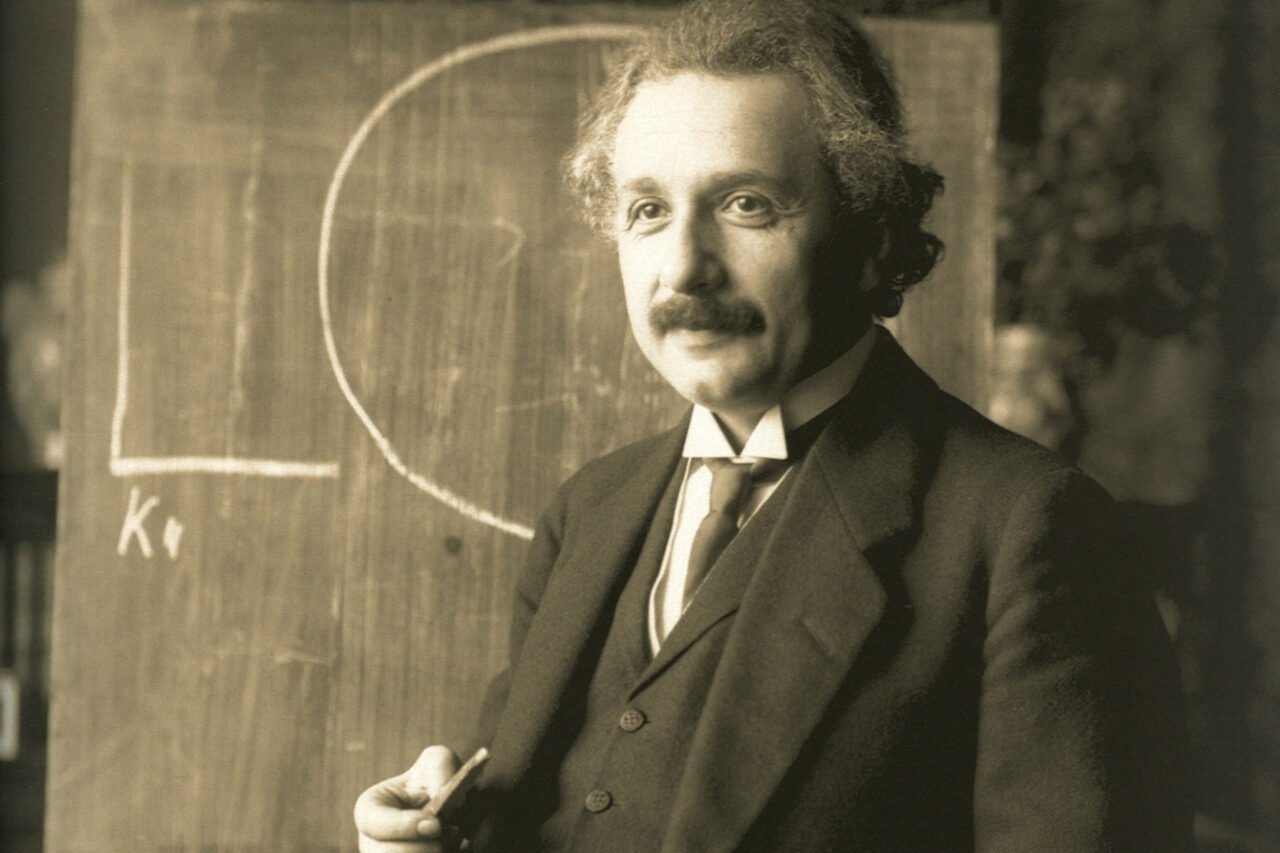Science
Einstein’s Missteps: 6 Predictions That Shaped Physics

Albert Einstein, renowned for his groundbreaking theories in physics, made significant contributions that have shaped our understanding of the universe. Yet, like all great thinkers, he was not infallible. Throughout his career, Einstein held several views that later proved to be incorrect or incomplete. By examining these missteps, we gain insight into his thought processes and the evolution of modern physics.
Gravitational Waves: A Shift in Perception
In 1916, Einstein introduced the general theory of relativity, predicting the existence of gravitational waves—ripples in spacetime that carry energy across the universe. This prediction was confirmed over a century later when the LIGO Collaboration detected gravitational waves in 2015. Interestingly, by 1936, Einstein had doubts about his own prediction. After collaborating with Nathan Rosen, he expressed skepticism about the existence of gravitational waves in a letter to physicist Max Born, stating, “I arrived at the interesting result that gravitational waves do not exist.” Despite initial resistance, further evidence ultimately validated his predictions.
Quantum Entanglement: An Incomplete Theory
Einstein’s relationship with quantum mechanics was complex. While he acknowledged the phenomena, he believed the existing theories were insufficient. One of the most notable examples is quantum entanglement, where two particles become interconnected, allowing the state of one to predict the state of the other. In a 1935 paper co-authored with Boris Podolsky and Rosen, he articulated his concerns about the completeness of quantum mechanics, leading to what is now known as the EPR Paradox. Although subsequent research has supported the phenomenon of entanglement, Einstein’s questions about its underlying principles remain relevant to ongoing discussions in physics.
A Unified Theory: An Unfulfilled Pursuit
For the last three decades of his life, Einstein sought to develop a unified field theory that would integrate gravity and electromagnetism, deliberately excluding quantum mechanics from his framework. He humorously compared himself to an ostrich hiding in the “relativistic sand” to avoid confronting quantum uncertainties. As John D. Norton, a philosopher of science, noted, Einstein’s intuition drove his research direction. Despite his efforts, he did not succeed in formulating a comprehensive theory, but his ambition established the pursuit of unification as a key goal in modern physics.
The Static Universe: A Misconception
Einstein once posited that the universe was static and introduced the cosmological constant to support this notion. He suggested this constant acted as a repulsive force counteracting gravity, maintaining a stable universe. Ironically, he later dismissed this constant as an arbitrary addition to his equations. However, in the 1990s, the concept re-emerged under the banner of dark energy, highlighting the universe’s accelerating expansion, a revelation that starkly contrasted Einstein’s earlier beliefs.
Black Holes: A Theoretical Rejection
Einstein’s views on black holes were notably skeptical. Although his theory of general relativity implied their existence, he vehemently opposed the idea of black holes, labeling them a “misfortune for theory.” During a 1922 meeting, he expressed concerns that black holes led to mathematical inconsistencies in his spacetime models. His objections were rooted in the belief that singularities introduced chaos into theoretical physics. Centuries later, empirical evidence, including observations from LIGO and the Event Horizon Telescope, has provided a more complete understanding of black holes, potentially changing Einstein’s perspective had he lived to see these developments.
The Dice of Reality: Einstein’s Rejection of Indeterminism
Einstein famously stated, “God does not play dice,” reflecting his discomfort with randomness in quantum mechanics. He sought a deeper, deterministic understanding of the universe, which he believed was obscured by incomplete theories. His skepticism was not a rejection of quantum mechanics altogether, but rather a call for a more comprehensive framework that could describe the underlying reality. This pursuit for clarity and coherence in physical models significantly influenced the debates surrounding quantum theory, many of which continue to be explored today.
Einstein’s journey through the realms of physics showcases the complex interplay between groundbreaking ideas and the inherent limitations of understanding. His initial misjudgments did not diminish his legacy; instead, they fostered critical discussions that advanced the field. As John D. Norton aptly summarized, predicting Einstein’s next steps was often a challenge, yet his inquiries have left an indelible mark on the landscape of modern physics.
-

 Science4 weeks ago
Science4 weeks agoALMA Discovers Companion Orbiting Giant Red Star π 1 Gruis
-

 Top Stories2 months ago
Top Stories2 months agoNew ‘Star Trek: Voyager’ Game Demo Released, Players Test Limits
-

 Politics2 months ago
Politics2 months agoSEVENTEEN’s Mingyu Faces Backlash Over Alcohol Incident at Concert
-

 World2 months ago
World2 months agoGlobal Air Forces Ranked by Annual Defense Budgets in 2025
-

 World2 months ago
World2 months agoMass Production of F-35 Fighter Jet Drives Down Costs
-

 World2 months ago
World2 months agoElectrification Challenges Demand Advanced Multiphysics Modeling
-

 Business2 months ago
Business2 months agoGold Investment Surge: Top Mutual Funds and ETF Alternatives
-

 Science2 months ago
Science2 months agoTime Crystals Revolutionize Quantum Computing Potential
-

 Top Stories2 months ago
Top Stories2 months agoDirecTV to Launch AI-Driven Ads with User Likenesses in 2026
-

 Entertainment2 months ago
Entertainment2 months agoFreeport Art Gallery Transforms Waste into Creative Masterpieces
-

 Business2 months ago
Business2 months agoUS Government Denies Coal Lease Bid, Impacting Industry Revival Efforts
-

 Health2 months ago
Health2 months agoGavin Newsom Critiques Trump’s Health and National Guard Plans









